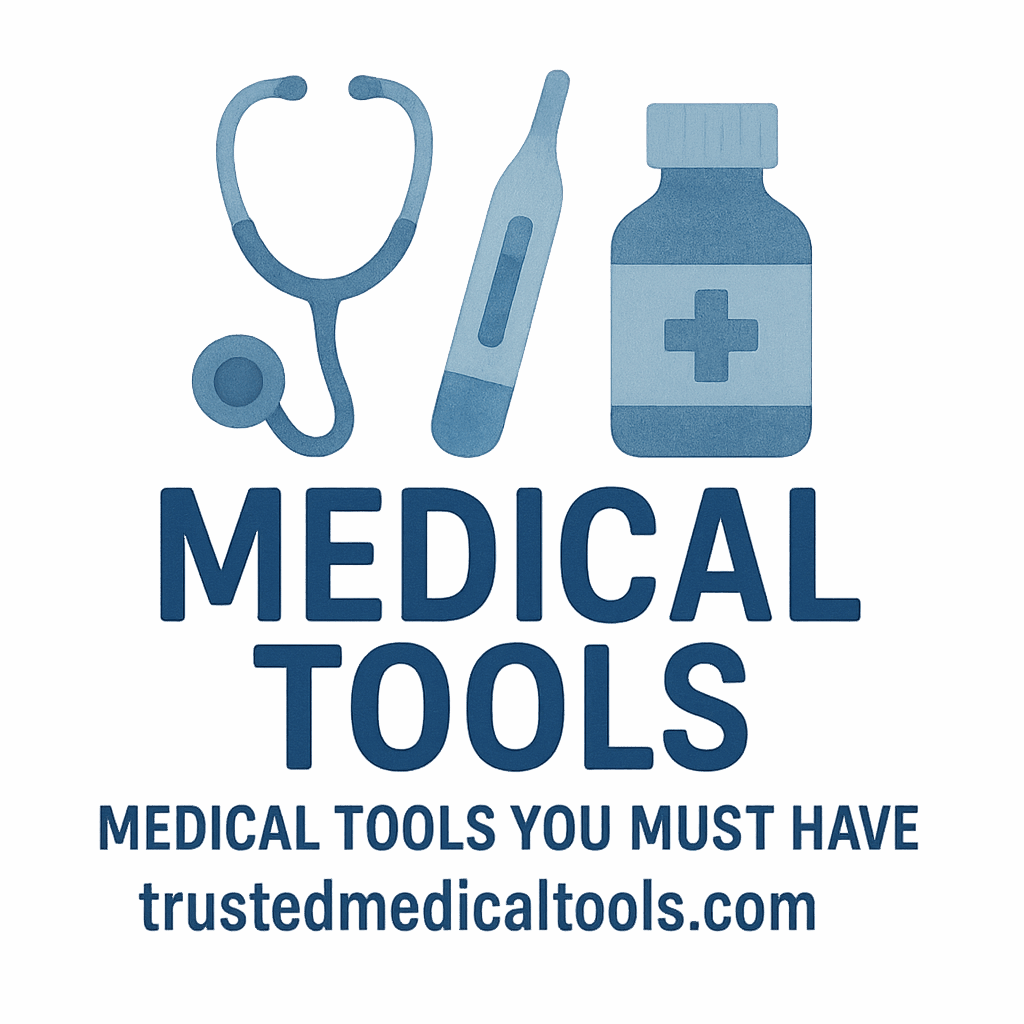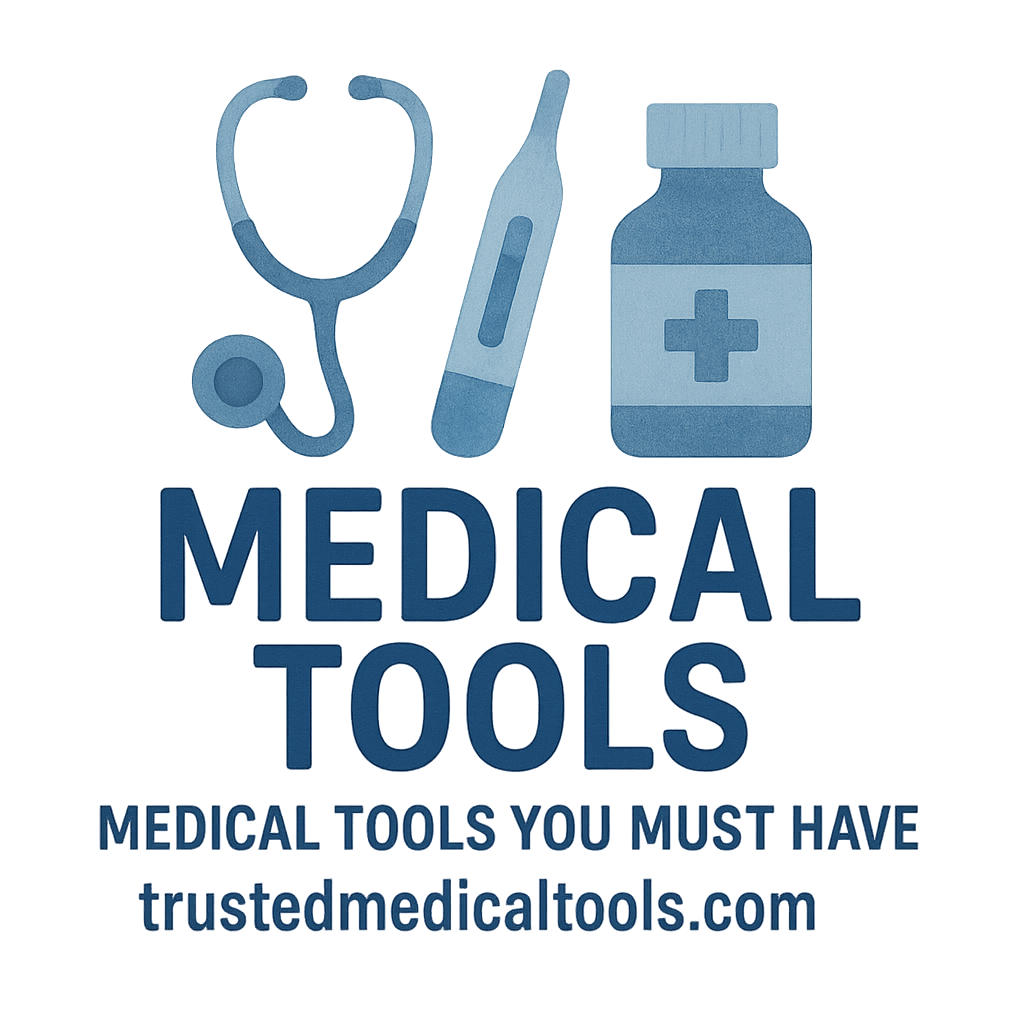Introduction
Emergencies can strike at any moment—whether at home, on the road, or in a remote area. Having the right medical tools on hand can make all the difference between life and death. In this article, we will explore five essential, life-saving medical tools every household should have for emergency situations. Whether you’re dealing with a sudden injury, illness, or life-threatening event, being prepared is the first step to providing critical care before professional help arrives. We’ll also touch on home care and the role of doctor-approved equipment in ensuring your family’s safety.
Why You Need Medical Tools for Emergencies
Emergencies don’t follow a convenient schedule—they happen unexpectedly, often requiring fast action. In these high-pressure moments, having medical tools on hand can drastically reduce the severity of injuries and illnesses. Medical tools are designed not only for home care but also to provide you with immediate action in critical moments. While it’s easy to feel helpless in a crisis, having the right tools and knowing how to use them can give you the confidence to manage the situation until emergency services arrive.
1. First Aid Kits
Why a First Aid Kit is a Must-Have
A first aid kit is the most basic and crucial tool in any emergency. It provides immediate access to essential supplies needed to manage wounds, burns, sprains, and other common injuries. A first aid box contains various health equipment like bandages, antiseptic wipes, gauze, and scissors—making it a go-to solution for DIY health checks at home.
What Should Be Included in a First Aid Kit?
A comprehensive first aid kit should contain:
- Adhesive bandages of various sizes
- Gauze pads and tape
- Antiseptic wipes
- Pain relievers (ibuprofen or acetaminophen)
- Thermometer
- Burn cream
- Gloves
- Tweezers
Make sure your kit is regularly updated with fresh supplies, especially OTC (over-the-counter) medications and supplementary tools.
Choosing the Right First Aid Kit for Your Needs
When purchasing a first aid kit, consider the size of your family and any specific health needs (e.g., allergies or chronic conditions). The first aid buying guide at Trusted Medical Tools provides a great resource to help you make an informed decision.
2. Blood Pressure Monitors
Why Blood Pressure Monitoring is Crucial in Emergencies
High blood pressure is often referred to as the “silent killer” because it can go unnoticed until it leads to severe health complications. Having a blood pressure monitor at home allows you to quickly assess your health during an emergency, especially for individuals with heart disease or a history of high blood pressure.
How to Choose the Best Blood Pressure Monitor for Home Use
When selecting a blood pressure monitor, opt for a digital, easy-to-use device. Look for one that has a doctor-approved label and is calibrated for accuracy. Models that include cuff sizes suited to different arm circumferences are also a good option.
For more information on how to monitor blood pressure and other monitoring devices, you can visit our guide on family care.

3. Digital Thermometers
Importance of Accurate Temperature Measurement in Emergencies
In an emergency, temperature measurement can be vital for detecting fever, infections, or heatstroke. A digital thermometer provides fast, accurate readings—essential for determining whether a situation requires medical intervention.
Types of Digital Thermometers to Consider
There are several types of digital thermometers, including oral, forehead, and ear thermometers. The most versatile options are often digital thermometers that allow for both easy use and rapid results.
For a comprehensive list of the best thermometers, visit the monitoring devices section at Trusted Medical Tools.
4. Automated External Defibrillators (AEDs)
How AEDs Can Save Lives in Cardiac Emergencies
When someone experiences a sudden cardiac arrest, their heart stops beating effectively, and the only chance of survival is immediate intervention. An AED is a portable device that can deliver a shock to the heart, restoring its rhythm and potentially saving a life.
The Basics of Using an AED
An AED is designed to be user-friendly, with clear instructions that guide you through the process of administering a shock. It’s crucial that anyone in your household knows how to use this life-saving device. Many public spaces and homes are now equipped with AEDs to increase survival rates during emergencies.
Top AED Models for Home Use
Some of the most recommended AED models for home use are the Philips HeartStart Home Defibrillator and the Zoll AED Plus. These models are easy to use, lightweight, and come with all the necessary accessories.
5. Medical Flashlights
Why a Good Medical Flashlight is Essential
A medical flashlight is a must-have tool for any home emergency kit. It helps you assess injuries in low-light conditions and is especially useful during power outages or nighttime emergencies.
Features to Look for in Medical Flashlights
When purchasing a medical flashlight, choose one with a bright LED bulb, long battery life, and a durable body. Additionally, opt for a model that provides different light settings for various needs (such as examining injuries or performing DIY health checks).
How to Organize Your Emergency Medical Tools
Proper organization of your medical tools is key to ensuring quick access when time is of the essence. Consider storing your first aid box in a central, easily accessible location, and label each section clearly. You may also want to create a checklist to help you ensure that all equipment is in working order.
Maintenance and Updates of Medical Equipment
Regularly check the contents of your medical tools and replace any expired or used items. Ensure your health equipment stays in good condition to function properly in an emergency.
How to Educate Your Family on Using Medical Tools
Knowing how to use these life-saving tools is only half the battle. It’s essential to educate your family members on basic first aid techniques, CPR, and how to operate items like the AED and thermometer.
Safety Precautions When Using Medical Tools
Be sure to follow the instructions for each tool carefully to avoid accidental injuries. Many tools, such as thermometers and AEDs, have specific guidelines that, if not followed correctly, can lead to ineffective treatment.
Conclusion
In emergency situations, the right tools can make all the difference in saving lives. A first aid kit, blood pressure monitor, digital thermometer, AED, and medical flashlight are essential items to have in your emergency preparedness plan. Being proactive in maintaining your home health care tools and educating your family can give you the peace of mind that you’re prepared for any situation.
FAQs
- What should I include in a first aid kit for my family?
A basic first aid kit should include bandages, antiseptic wipes, gauze pads, a thermometer, pain relievers, and gloves. You can also add additional items depending on your family’s specific needs. - How do I choose the best AED for home use?
Look for an AED with clear instructions, lightweight design, and one that is approved by medical professionals. Make sure it has the necessary accessories, like electrode pads and a battery. - Can I use a blood pressure monitor without a prescription?
Yes, over-the-counter blood pressure monitors are available for home use. Make sure to choose one that is calibrated and easy to use. - How often should I check my emergency medical tools?
It’s recommended to check your tools at least once every few months to ensure everything is functioning and that you have enough supplies. - Are digital thermometers more accurate than traditional ones?
Yes, digital thermometers provide quick and accurate results and are generally more reliable than traditional mercury thermometers. - How can I teach my family to use medical tools effectively?
Hold regular training sessions on using tools like the AED, first aid kits, and thermometers. Online courses and hands-on practice are also beneficial. - Where can I buy medical tools online?
You can purchase medical tools from reliable online stores like Trusted Medical Tools, which offers a wide range of doctor-approved products for emergency situations.


